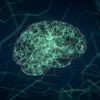The Tufts University School of Medicine team and their collaborators have discovered a small molecule that shows promise as a treatment for people with epilepsy whose seizures have become resistant to benzodiazepine drugs.
Cell Reports Medicine posted the results of the study on the internet on March 7. The study was conducted on cultured human cells and rodents.
Researchers wanted to find brain areas where abnormal signals could be repaired. Their attention was directed toward a potassium chloride co-transporter known as KCC2. In a healthy brain, KCC2 pumps chloride out of nerve cells to slow down excessive firing of neurons.
Researchers found that when Compound 350 was given to rodents with drug-resistant seizures alongside benzodiazepine, the rodents’ seizure activity decreased.
What researchers stated: “These findings demonstrate that KCC2 activation is a promising strategy to terminate BDZ-resistant seizures and limit the associated neuronal injury.”


